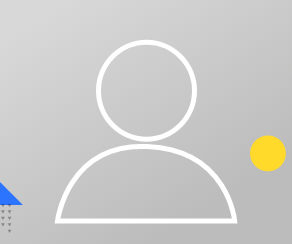Rolande Hodel, Ph.D.

Rolande Hodel
President, AIDSfreeAFRICA
M.S., Inorganic Chemistry, University of Kansas, Lawrence
Ph.D., Inorganic Chemistry, City University of New York-Queens College
After earning a M.S. in Chemistry from the University of Kansas, Lawrence, Kansas, she started a career as a synthetic bench chemist working for pharmaceutical companies focused on drug delivery. Later, when she was working on her doctorate with a focus on nanotechnology, she began thinking about making a career change to focus more specifically on pharmaceuticals in an international context.
After hearing a remarkable presentation at the United Nations in 2003, Hodel became even more focused on her vision, and the year after she earned her Ph.D. in 2005, she founded AIDSfree AFRICA, a nonprofit organization dedicated to helping Africans become self-sufficient in producing pharmaceuticals — in particular, drugs needed to help people living with HIV/AIDS.
Through her organization, Hodel works as an independent consultant. To achieve her group’s mission, Hodel oversees all of the key activities — from fundraising, alliance-building and sharing technical expertise to many of the day-to-day aspects of running the organization.
Create the project, create it big, create the space and then let people step into this space.
How you found your first chemistry-related job:
I attended the National Employment Clearing House at the ACS National Meeting in Washington, DC.
Primary job responsibilities:
I founded and lead AIDSfreeAFRICA, and our mission is to empower Africans to become self-sufficient in producing pharmaceuticals. I am self-employed, and I also raise funds, speak in public, write grants, train and supervise volunteers in US and Cameroon, and negotiate contracts with Africans. I consult with drug production and drug supply chain management. I implement and supervise income-generating programs in Africa, specifically Cameroon. I also connect with and build networks among universities, pharmaceutical companies and other organizations in the US and Africa.
Typical day on the job:
- Fundraising, grant writing, working with donors: 30%
- Public speaking: 10%
- Managing the non-profit organization: 20%
- Training Africans and US volunteers: 30%
- Meetings: 30%
Work environment:
Nine months of the year I work from my home in New York, where I have a home office with typical office equipment. The remaining three months, when I am in Africa, I travel within Cameroon, either in buses, meetings or on my computer.
Work schedule:
I set my own speed and hours, and tend to work more than 40 hours a week, but equally build in time to take care of myself, because AIDSfree AFRICA cannot live without me, at least not yet. When I’m not traveling in the US to give talks or attend meetings, about 3 months each year I am in Cameroon, traveling around the country to visit companies, government, universities, hospitals, and our "adopted" village of Esu.
Travel schedule:
10-15 days out of the month.
Tools you can’t live without:
Quickbooks, Facebook, Linkedin, Guidestar, PowerPoint, and my small, less than two-pound netbook computer.
What you like most about your job:
You couldn’t pay me enough to not do what I do. The impact I have on people’s lives, and the number of people benefiting directly from my work, is unbelievable — and I feel like I’m living my dream. My invented job has a never-ending stream of challenges, is never boring and is fulfilling as no other job has ever been. I love the challenge of living in two countries and having to bridge these often opposing forces. My US friends admire my audacity, support me personally and my work. I save lives every day.
Best productivity trick:
Every project has to be a win-win situation, has to create income and jobs. Nothing is given for free. People are held responsible and have to contribute their share. Projects are created with the idea that they have to be sustainable without me being present.
Best career advice you’ve received:
Create the project, create it big, create the space and then let people step into this space. Create who you are being, do not worry about what you "have" or what you "do," but instead, figure out who you have to "be." In my case the question was “who do I have to be to run AIDSfree AFRICA?”
Skills or talents that make you a good fit for your job:
I have three back-up solutions for every possible problem. I do not need comfort. I am practical. I have a dream which I follow and never waver. I do believe that people have the right to access pharmaceutical drugs to survive. I can listen, involve people, ask for help and get it. On a more practical level, earning my Ph.D. empowered me to go out in the world and pursue my dream. I’ve had to learn a variety of new skills ‘on the job’ — including finding answers to legal and tax questions, writing grants and even creating a web presence. But through the process of earning my doctorate degree, I truly “learned how to learn” — and that’s allowed me to overcome all the obstacles I’ve encountered.
Essential habit you wish you’d started earlier:
Today, I can walk into a room and tell myself that I love each and every one in this room/auditorium/lecture hall/government office/etc., and I do. Once I feel the love for my audience/students/patients/collaborators, everything works.
Favorite ACS resource:
Anne O'Brien, Henry Bryan, Peter Dorhaut, the International Activities Committee, which I belonged to for three years.
How you've benefited from being an ACS member:
Getting two jobs through ACS, getting a $30,000 humanitarian award, and getting to know many, many good people whom I call my friends. I also met the Nichols family (donors of the Westchester NY Nichols Award), whose grandchild recently moved to Kenya and is now helping me to get solar power for our community center that AIDSfree AFRICA is currently building in Esu/Cameroon.

